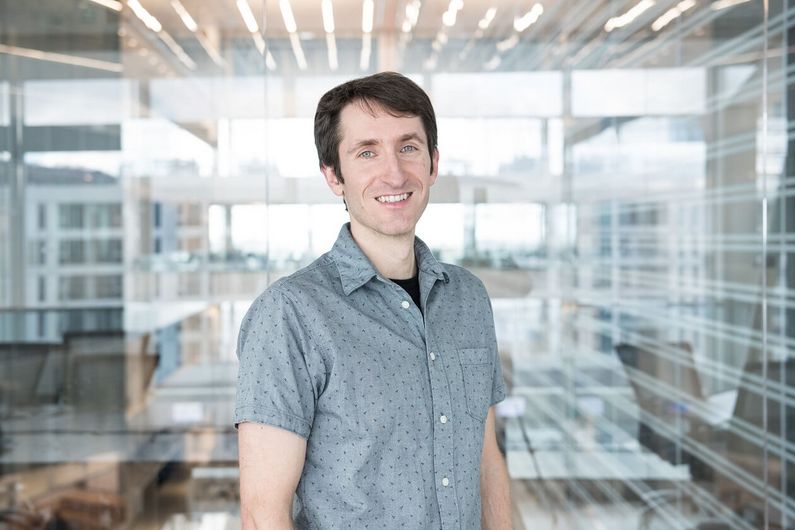New horizons in quantum physics
- UdeMNouvelles
04/19/2022
- Catherine Couturier
UdeM physicist William Witczak-Krempa studies unusual states of matter in the quantum realm.
William Witczak-Krempa, a professor in UdeM’s Department of Physics since 2016, is a quantum physicist who studies highly entangled quantum states of matter. Quantum entanglement enables the encoding and sharing of information at great distances, a property that is harnessed in quantum computing. Discovered 120 years ago, quantum physics studies the behaviour of small particles (e.g. molecules, atoms and electrons) and phenomena that classical physics cannot explain.
“Basically, we model physical systems,” Witczak-Krempa explained. “We do calculations on paper and on computer to understand how complex quantum systems work. It takes thought, it’s theoretical, and you also need to have an intuition about what’s going on.”
Witczak-Krempa became interested in the structure of quantum entanglement in materials during his post-doctoral research at the Perimeter Institute for Theoretical Physics in Waterloo, Ontario and at Harvard. “I found it fascinating!” he recalled. “It’s the sort of thing you don’t find in materials physics textbooks. It gets very little attention. It opened up a new world for me.” Witczak-Krempa’s pioneering work earned him the Canada Research Chair in Quantum Phase Transitions in 2016, which was renewed in 2021. The research funding enabled him to hire a team so he could tackle more ambitious projects and complete them more rapidly.
Understanding the world of quantum matter
The common thread that runs through Witczak-Krempa’s work is an interest in states of matter. “In my case, it’s quantum matter, which can exhibit surprising properties at, for example, very low temperatures,” said Witczak-Krempa. “The goal of our research is to understand and discover possible new states of quantum matter and the transitions between them. One transition we are all familiar with is water boiling or freezing.”
For example, at very low temperatures some metals become superconductors; in this quantum state, electrons pair up and propagate without any resistance or dissipation, enabling electricity to pass without energy loss. However, the low temperatures that are required limit large-scale production. But what if we could create quantum materials at higher temperatures and make them more available for human use? This is what Witczak-Krempa’s team is exploring using a range of tools, including recent advances in artificial intelligence.
Inseparable twins
Witczak-Krempa and his team are conducting bold and creative research on what are known as highly entangled states. Entanglement is a quantic connection between two or more particles such that an action performed on one particle affects its “partner,” regardless of the distance between them.
“If I measure the properties of one of the two particles, I automatically know the state of the other, even if it’s at the other end of the galaxy,” explained Witczak-Krempa. “This is impossible in classical physics, but not in quantum physics. I’m trying to figure out how entanglement manifests in complex systems and which materials exhibit strong entanglement.” This research is important not only for better understanding quantum matter, but also because entanglement is a physical resource used in quantum computers.
While theoretical in nature, “this research is clearly part of a growing interest in shifting to quantum technologies,” noted Witczak-Krempa, who also supervises numerous students and leads an active research group. Training the next generation of researchers is critical because much more science is needed to understand and design the architecture of quantum computers, and to write quantum algorithms. “We haven’t even reached the stage where the engineering work can begin; it’s very complex,” concluded Witczak-Krempa. Clearly, he has his work cut out for him.
The work of Witczak-Krempa and his team is funded by the Fondation Courtois.













